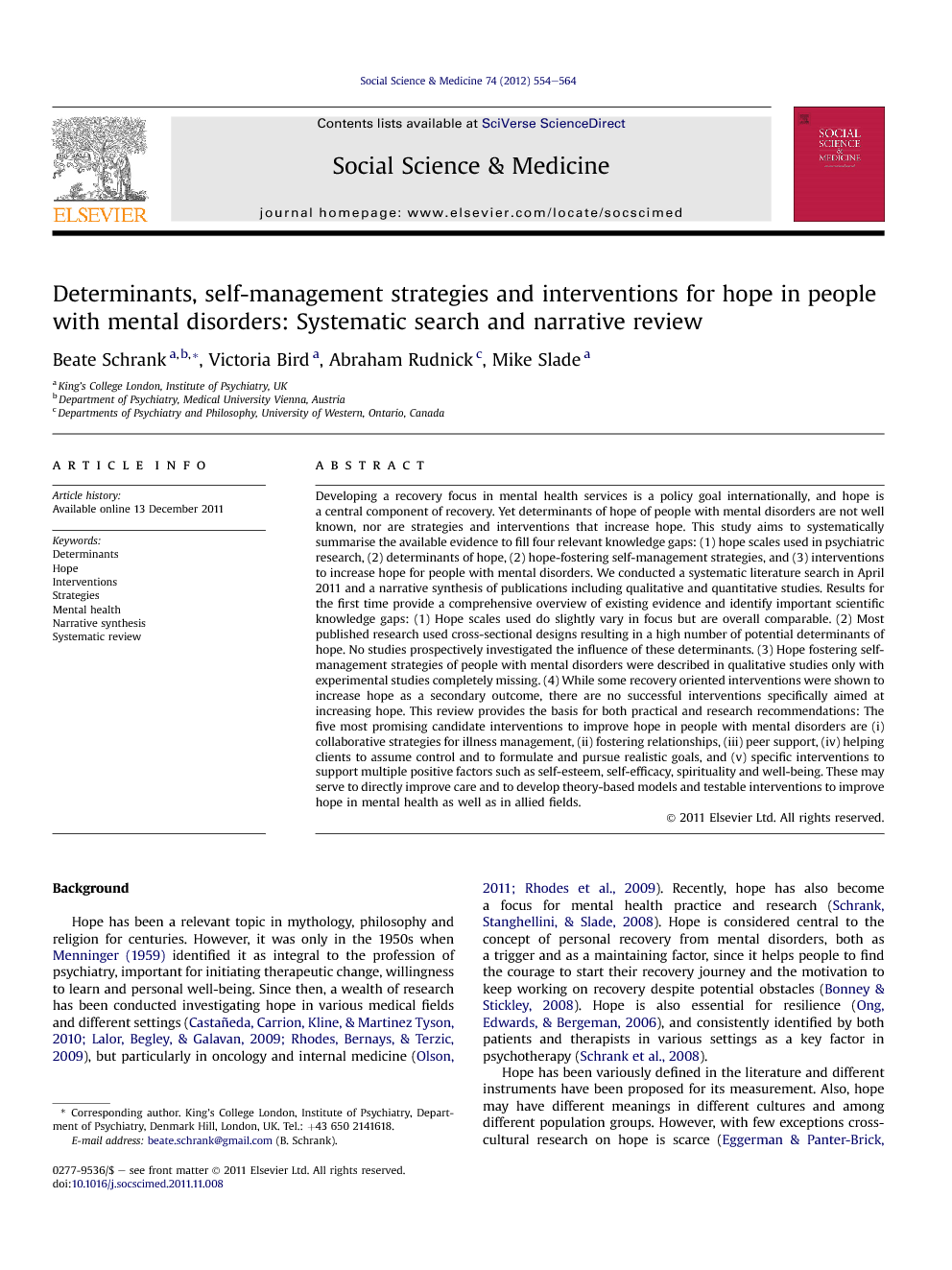ترجمه فارسی عنوان مقاله
عوامل، استراتژی های خود مدیریتی و مداخلات برای امید در افراد مبتلا به اختلالات روانی: جستجوی سیستماتیک و بررسی روایی
عنوان انگلیسی
Determinants, self-management strategies and interventions for hope in people with mental disorders: Systematic search and narrative review
| کد مقاله | سال انتشار | تعداد صفحات مقاله انگلیسی |
|---|---|---|
| 29600 | 2012 | 11 صفحه PDF |
منبع

Publisher : Elsevier - Science Direct (الزویر - ساینس دایرکت)
Journal : Social Science & Medicine, Volume 74, Issue 4, February 2012, Pages 554–564
ترجمه کلمات کلیدی
عوامل -
امید -
مداخلات -
استراتژی -
سلامت روان -
سنتز روایت -
مرور نظام مند -
کلمات کلیدی انگلیسی
Determinants;
Hope;
Interventions,
Strategies,
Mental health,
Narrative synthesis,
Systematic review,

